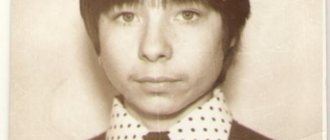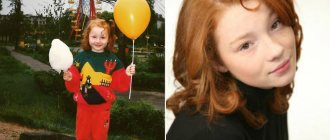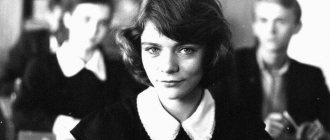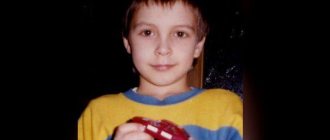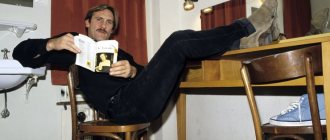Survived two accidents and won three Stanley Cups
April 1, 2020
As part of the USSR national team, Vyacheslav Fetisov played 147 official matches. Photo: molinos.dk
Playing as a defenseman, Vyacheslav Fetisov won the Olympics twice and became a three-time Stanley Cup winner (once as a coach). He almost ended his career at the age of 20, clashed with the legendary Viktor Tikhonov and played in the famous “Russian Five” of Detroit. We talk about the main milestones in the biography of the great hockey player.
Fetisov played for the ZhEK team
Fetisov did not immediately get into a professional sports school. When Vyacheslav was 8 years old, he was rejected from the sections of Dynamo Moscow and CSKA.
Fetisov first tried to break into Dynamo. He went to school on the advice of the guys from the yard team who had already played for the blue and whites. But Fetisov was unlucky - Dynamo did not recruit such small ones. The blue and white coaches advised the boy to contact CSKA.
In the “army men” section, Fetisov decided to act more cunningly - he gave himself a year, saying that he was 9. To Fetisov’s disappointment, CSKA had different recruitment rules and they no longer accepted such “old” guys into the team. Later, Vyacheslav was invited to additional recruitment into the junior group, but during the tryout, the future hockey star had no effect on the coaches.
The first hockey team of Vyacheslav Fetisov.
Photo: km1954.ru Until the age of 12, Fetisov trained in the ZhEK team No. 19. In 1960, the team won silver medals in the Moscow Golden Puck tournament. The final game was attended by the coach of the CSKA school, Yuri Chabarin, who noted Fetisov. Chabarin liked the defender’s play, and he took Vyacheslav to the CSKA sports section.
The childhood of the legendary hockey player
The famous hockey player Vyacheslav Fetisov, whose biography enjoys special attention among sports fans, was born into a simple family of industrial workers on April 20, 1958. At the time of birth, the family lived in the capital. Fetisov's parents worked at one of the aircraft factories in Moscow. In addition to Vyacheslav, his brother Anatoly was present in the family. The children almost always spent time together. My father had a great passion for sports and was an active person at the factory. The father of the future hockey player systematically took part in factory football competitions. He also practiced boxing at the amateur level. It was the father who brought the boy to the hockey rink.
Coach Boris Bervinov immediately noticed great potential in the guy and a desire for development in the sports field. In addition to Fetisov, other boys also attended the hockey section. The coach managed to assemble a team from the best. Vyacheslav was so engrossed in hockey lessons that the guy literally disappeared on the court. The future athlete really liked this sport. Initially, Fetisov was accepted into the local team of one of the utility organizations. Under the guidance of an experienced coach, the boys made it to the city finals. The final game was attended by Yuri Chabarin himself (the future legendary coach of the CSKA team).
Vyacheslav showed leadership qualities that attracted the attention of coaches. Later, Chabarin himself invited the guy to Dynamo. However, age limits did not allow the young athlete to compete. At the age of 12, they agreed to take the boy to a youth sports school. Fetisov gained his first professional experience in the Olympic reserve. Senior players from famous teams passed on their knowledge and skills to the younger generation. In turn, the future athlete carefully remembered everything that the hockey players gave. In the future, this played a big role in the development of my professional career.
The first 15 years of his career Fetisov played for CSKA
Fetisov first played for the main team of CSKA at the age of 17. On May 15, 1975, the defender came out in the third pair of “army” in the match against Chelyabinsk “Traktor”. The debut was not very successful. After the meeting, Fetisov was sent to the youth team.
Fetisov played 478 matches for CSKA in the USSR Championship and scored 374 points (153 goals and 221 assists). Photo: sport-express.ru
The defender became the leader of CSKA in the 1977/78 season. CSKA head coach Konstantin Loktev graduated the 19-year-old newcomer along with experienced defensive player Gennady Tsygankov. As a result, the pair Fetisov - Tsygankov became one of the best combinations in the league.
While playing for CSKA, Fetisov played 478 matches in the USSR championships and won tournament gold medals 14 times.
Childhood
The boy grew up in the capital, the time was post-war, difficult, he had to live in long barracks, where there were no civilized conditions. The potbelly stove didn't really heat up. One night he wanted to drink, but the water in the bucket froze into ice. His father always told him that if you want to get out of here, you must study well. This was Slava’s attitude towards life, and he followed it. I didn’t really want to sleep bundled up and in a fur coat in winter.
Only six years after Vyacheslav’s birth, the family finally moved into an apartment. At first he had double-slide skates, which provided additional stability on slippery surfaces. They had to be tied to the boots correctly. A hockey rink was built from old boards on the outskirts of Moscow, where the boy had his first “break-in”, playing in yard teams.
Parents never put pressure on their son in terms of choosing a profession and did the right thing. According to some sources, Slavik’s father worked at a construction site, according to others, together with his mother at a Moscow aircraft plant. The boy became very interested in hockey, playing on the court all day long.
Luck smiled on him when the persistent and passionate young hockey player was noticed by the coach of the CSKA team. The children's sports school of this club became the first step in Fetisov's glorious and difficult path to the heights of success, because he did not get there right away, but only on the third attempt.
The young man’s hard work and determination quickly yielded results. At the age of 17, the guy began to earn more than his father. I was able to buy a car and get an apartment.
Fetisov made his debut for the USSR national team at the age of 19
In 1977, Fetisov went to the World Youth Championship. The USSR national team became the best team of the tournament, beating Canada (6:4) in the key match. In 7 meetings, Fetisov scored 5 points (2 goals and 3 assists). The tournament organizers recognized him as the best defender of the championship.
In the USSR national team, Fetisov played in the legendary five along with defender Alexei Kasatonov (second from left), forwards Sergei Makarov (far left), Igor Larionov (center) and Vladimir Krutov (far right). Photo: iz.ru
After the MFM, Fetisov was noticed by the coaches of the main team and invited to the main team for the adult world championship. Vyacheslav was not the main defender. He played only 5 out of 10 matches, but managed to prove himself. Fetisov scored 6 points (3 goals and 3 assists) and became the top scorer among the defenders of the USSR national team. Already at the next World Championship, Fetisov was the main player and leader of the team. In total, he played 147 matches for the USSR national team and scored 150 points (52 goals and 98 assists).
As a member of the USSR national team, Fetisov won the Olympic Games 2 times, the World Championship 7 times, and the European Championship 9 times.
Career of hockey player Vyacheslav Fetisov
Our today's hero managed to appear for the first time in the main lineup of the army team in 1975. At first his position in the team was unstable. The defender spent the 1976 season in the youth team. However, subsequently Fetisov still managed to gain a foothold in the main team and even advance to a leading position in his native team. In 1977, Vyacheslav became the champion of the Soviet Union for the first time. Subsequently, the talented Moscow hockey player achieved such a high result twelve more times.
For most of his career, our today's hero played for CSKA Moscow, but later in his career there were also Moscow Spartak, the American New Jersey Devils and the Detroit Red Wings. In total, Vyacheslav Fetisov spent ten full seasons in the NHL, during which he managed to win many team and personal awards.
Twice in his career, Vyacheslav Fetisov raised the Stanley Cup over his head. In addition, the player’s overseas career also included a brilliant victory in the Canada Cup and some other prestigious trophies.
As for the statistics of performances in the USSR national team, in this regard it is worth noting the fact that the talented defender began to constantly perform in its composition very early. In 1977, he made his debut in the national team and the same year was recognized as its best defender. In every match and in every shift, Vyacheslav Fetisov played brightly and confidently. That is why, already in the early eighties, many famous commentators and sports functionaries openly called him the best hockey player in the Soviet national team. His popularity among fans grew with every match and with every cup won. And in this regard, it is quite easy to understand Soviet hockey connoisseurs.
Over the years, Vyacheslav Fetisov managed to win two Olympic gold medals, six world championships, eight European championships, and some other less prestigious tournaments with the USSR national team. Several times, as captain of the Soviet Union national team, our today's hero won prestigious individual prizes. Fetisov was recognized as the best hockey player in Europe and was included in various symbolic teams based on the results of prestigious tournaments.
After the end of his sports career in 1998, the Russian hockey player was also included in the NHL and IIHF (International Hockey Federation) Hall of Fame. Subsequently, Vyacheslav Fetisov was also awarded a place in the symbolic team of the twentieth century.
The hockey player also received many prestigious awards in his native country. He became an Honored Master of Sports of the USSR (1978), laureate of the Order of Lenin, the Red Banner of Labor, two Orders of the Badge of Honor, as well as many other awards. In 2008, the hockey player even had a lifetime monument erected on the CSKA Walk of Fame.
Fetisov almost ended his career at 20 years old
In 1978, Fetisov flew with the USSR national team to the Netherlands. After the flight, the defender's legs were paralyzed. Fetisov was urgently transported to Moscow and admitted to the military hospital named after. Burdenko. Doctors diagnosed “pinched nerve endings.” The player needed surgery, after which he could end his career.
Fetisov later recalled how one of the hospital doctors turned to him: “You got it back, boy! God willing, if you walk on your own, without help.” After these words, Fetisov threw a glass at the doctor, which was standing on the table near his bed.
Fetisov turned to the famous physiologist Yakov Kots. Kots suggested that the hockey player refuse operations and recover under his supervision. Fetisov was discharged from the hospital and cured with the help of Kots therapy. It took the hockey player six months to recover.
Early years, childhood and family of Vyacheslav Fetisov
Vyacheslav Fetisov was born in Moscow. He first started playing hockey on an amateur rink, which was located in one of the courtyards next to Korovinskoye Highway. Speaking in games for his team, Vyacheslav almost immediately became the leader of the team. In the city tournament "Golden Puck", our today's hero, together with his team, took second place.
Hockey player Vyacheslav Fetisov in his youth
However, despite the defeat in the final, he managed to attract the attention of the coaching staff of the Dynamo hockey team. He was invited to play for this club, but it later turned out that the aspiring hockey player was still too small for their training group. Thus, Fetisov found himself left behind Dynamo, and later began playing for another Moscow club - CSKA.
CSKA coach Viktor Tikhonov did not want Fetisov to go to the NHL
In 1983, New Jersey selected Fetisov 145th overall in the NHL draft. In 1988, Devils general manager Lou Lamoriello flew to Moscow to negotiate Fetisov's transfer. Lamoriello offered the USSR Sports Committee a million dollars for the player's transfer. The Soviet leadership agreed to release the hockey player. The coach of CSKA and the USSR national team, Viktor Tikhonov, was against Fetisov’s transfer. Tikhonov insisted that the defender spend one more season in the “army” club and then go to the NHL. The coach used his connections in the country's leadership to slow down the player's transfer. After Fetisov refused to continue his career at CSKA, Tikhonov excommunicated him from the team. The hockey player was not even allowed to train at the army base.
Vyacheslav Fetisov played for 12 years in CSKA and the USSR national team under the leadership of Viktor Tikhonov. Photo: sport-express.ru
Fetisov spoke about his relationship with Tikhonov in one of his interviews: “For Tikhonov, we are ice robots. I'm a strong person, but I can't see it anymore. I'm tired of Tikhonov's dictatorship, which is causing an unhealthy situation in the team. And I don’t want to play anymore for a coach I don’t trust.”
For the first half of the 1988/89 season, Fetisov kept in shape by training with amateur teams. Before the 1989 World Championship, the hockey players of the USSR national team gave Tikhonov an ultimatum. The players demanded Fetisov's return and refused to play without him. Tikhonov agreed and took the defender to the World Cup.
Fetisov had a good tournament, despite missing almost the entire club season. In 10 matches, he scored 6 points (2 goals and 4 assists) and was recognized as the best defender. The USSR team won gold.
In the summer of 1989, Fetisov was allowed to leave, and he moved to New Jersey.
Entering professional hockey
The hockey player's debut took place after the Olympic school. At the World Championships (juniors), the young athlete showed himself on the positive side. Later, Fetisov also performed at the European Championship, where he met famous players from other countries. At the beginning of his career, the young man spent most of his time training at the CSKA club. Under the leadership of Viktor Tikhonov, the guy managed to reveal his athletic abilities. The training took place from morning to evening, which brought a large supply of knowledge and experience. Also, the future famous hockey player paid attention to the development of his own body.
In terms of anthropometry, the guy was lucky by nature. His height of 185 cm and strong muscles allowed him to successfully play on the ice with more experienced hockey players. The coach always only needed a victory. Fetisov was afraid to disappoint his mentor. Therefore, I made efforts to achieve the desired results. Already at the age of 17, the guy played for CSKA-Moscow. By 1978, Vyacheslav had become a fairly experienced player. He was team captain several times. At the same time, the hockey player played more than 500 matches. The athlete also won the USSR Cup three times. Even today, Fetisov is the best defender in the history of the Union.
However, 1979 changed the further direction of his sports career. A player from the national team injured his back. The injury was quite severe. Doctors claimed that the injuries received could leave the hockey player in bed forever. But the desire and thirst for victory turned out to be stronger. A few months later, Fetisov was already standing on the ice and doing what he loved. Two years later, the hockey player won the Canada Cup. In that match, domestic athletes honored the memory of the legendary player - Valery Kharlamov. By 1996, Vyacheslav once again became the captain of the team. At that time, USSR hockey players were the favorites on the continent. Fetisov managed to win 2 Olympic golds.
Fetisov changed his game to gain a foothold in the NHL
In the USSR Championship, the defender often attacked and scored a lot of points. After moving to New Jersey, Fetisov could not act in the same way. The Devils were one of the most defensive teams in the league. The Devils' defenders almost didn't join the attacks. They were required to win the power struggle and operate reliably in their zone. Fetisov began to play simpler than before, making aggravating passes less often and finishing attacks. He didn't produce much, but became a solid starter for the Devils.
In 341 matches with New Jersey, Fetisov scored only 19 goals.
Fetisov was part of the famous “Russian Five” of Detroit
In 1994, Fetisov stopped playing for New Jersey. The Devils traded the 37-year-old defenseman to Detroit. Three Russian players played for the “wings”: defender Vladimir Konstantinov, forwards Sergei Fedorov and Vyacheslav Kozlov. That same season, forward Igor Larionov joined the Red Wings roster.
Detroit head coach Scotty Bowman decided to unite the Russian players into one five and created one of the most famous combinations in history. Russian hockey players played combination hockey, which was unusual for the NHL in the 1990s. They made a lot of cross passes, changed places on the ice and held the puck for a long time. Combination hockey impressed North American journalists and fans. They began to call Detroit's leading combination the "Russian Five".
In the 1994–95 season, Fetisov's first with Detroit, the Red Wings reached the Stanley Cup final. At the decisive stage, Detroit lost to New Jersey (0:4 in the series), Vyacheslav’s former team.
Fetisov played an important role in the “Russian Five”. He often launched attacks, acted well in play-by-play and provided insurance for his partners. Fetisov's second season in Detroit was the best in the NHL. In 69 games, the defender scored 42 points (7 goals and 35 assists) and was third in the league in terms of utility (+37).
In 2020, a documentary film about the “Russian Five” was shot in the United States. Photo: instagram.com/therussianfive
Fetisov won two Stanley Cups with Detroit - in the 1996/97 and 1997/98 seasons. After the second victory, the veteran retired.
NHL
The first years in a foreign country were not sweet. In addition to the language barrier, problems arose with teammates - each stood for himself and could often set up the other, pretending to stop the advancing enemy, but at the right moment he stepped aside, and his own player could get injured. To Fetisov, this attitude seemed strange, to put it mildly. The first season was unsuccessful, in the second year things were even worse for New Jersey, and Vyacheslav was out for a month with pneumonia. But the Russian player did not give up, and the team still came out of the crisis, not without his efforts.
In 1995, Fetisov finally moved to a team worthy of his championship ambitions - Detroit. “Red Wings” gave the world a whole five Russian players, which only the lazy did not pay attention to: Fetisov, Konstantinov, Kozlov, Larionov and Fedorov. Our masters, playing Soviet combination hockey, made a splash in the League and made a decisive contribution to Detroit's victory in the 1997 Stanley Cup.
Vyacheslav Fetisov and Vladimir Konstantinov - Stanley Cup winners with the Detroit Red Wings
Fetisov was twice involved in serious car accidents
In 1985, Fetisov was driving from training with his brother Anatoly. Anatoly studied at the CSKA sports school and was considered a talented junior. Vyacheslav decided to overtake the Zhiguli driving ahead. The Zhiguli lost control and hit Fetisov’s car, which crashed into a pole. Vyacheslav suffered a severe bruise. Anatoly died in the hospital a few hours after the disaster.
According to Fetisov, after his brother’s death he thought about suicide. They helped him cope with the loss of the words of his mother, who addressed him at the wake: “Slava, you must live and play for two.”
In 1997, Fetisov was again in a car accident. The player was returning from a charity event after Detroit's victory in the Stanley Cup. Vyacheslav’s Detroit partner Vladimir Konstantinov and Red Wings masseur Sergei Mnatsakanov were traveling with him. The driver of the car, Richard Gnaida, was under the influence of drugs and lost control. The car crashed into a tree at high speed. Fetisov seriously injured his legs and chest, but returned to the ice the following season. Konstantinov and Mnatsakanov received severe head injuries and remained disabled.
FETISOV Vyacheslav Alexandrovich
Honored Master of Sports of the USSR, Honored Coach of Russia, two-time Olympic champion, three-time Stanley Cup winner, seven-time world champion, ten-time European champion, World Cup winner, thirteen-time USSR champion, member of the Federation Council of the Federal Assembly of the Russian Federation, president of the CSKA hockey club
Born on April 20, 1958 in Moscow, in the Beskudnikovo district. Father - Alexander Maksimovich (born 1931). Mother Natalya Nikolaevna (d. 1996). Wife – Lada Yurievna, daughter – Anastasia. The future best defender of world hockey was born into a simple working-class family of first-generation Muscovites - his father came to the capital from a Ryazan village, his mother from a Smolensk village. Alexander Maksimovich worked at a closed factory, then in a construction organization, Natalya Nikolaevna worked for many years at the Pravda printing house. Until the age of 6, Slava and his parents lived in a barracks where, in addition to the Fetisovs, there were two dozen other families. Their room was on the edge, and his father and grandfather built a small extension, where he spent his early childhood. Living in such conditions was not easy: “I remember that in winter the water froze in the bucket because the stove did not heat the entire apartment.” The first ice that the very little Slava learned to skate on was frozen water from a pump standing on a hillock, which covered almost the entire street with ice. From the age of four, his father, a fit and athletic man, took the boy to nearby ponds and taught him to skate on double-slide skates, which were tied with a rope to felt boots. Then “eider” skates appeared, and this became a holiday for the boy: “At that time, not every family could buy skates. And I also had a bicycle, because everyone in the family worked and there was enough money for me.” In 1964, the Fetisov family moved to a new three-room apartment on Korovinskoye Highway. It was in the Korovino courtyard near house No. 4, where local enthusiasts built a hockey box, and even with lighting, that the future champion became familiar with the great magic of hockey. He picked up a stick in those years when the whole country was fascinated by the victories of the hockey team of Anatoly Tarasov and Arkady Chernyshev, which won the World Championships and Olympic Games nine times in a row from 1963 to 1971. At first, Slava tried to combine his passion for hockey with football, and he entered the field in . Hockey required sacrifices - Slava was allowed to go on the ice only after completing all his lessons: “Education in the family was considered the main thing. My father said: I’ve been plowing all my life, but if you get a diploma, you’ll be a man. For them, an engineer son was much higher than an athlete son.” And Fetisov studied very well right up to graduation, making it to classes in the morning training, and subsequently received a diploma at the Military Institute of Physical Culture in Leningrad. However, big hockey quickly buried my parents' dream. But Slava was accepted into a serious hockey school only on the third try - neither CSKA nor Dynamo liked him at first. Backyard hockey was saved by the famous “Golden Puck” - a massive all-Union competition for young hockey players. A real incident also helped. A team of boys from Housing Office No. 19 on Korovinskoe Highway made it to the finals of the city’s Golden Puck tournament; one of the games took place on Peschanaya Square, the same place where the young army men trained. Their coach Yuri Aleksandrovich Chebarin lingered a little after training and looked at the battle of the yard boys. And a couple of days later, Slava’s Zhekovsky mentor, Boris Nikolaevich Bervinov, took him to training at CSKA. The boy was taken to the team and assigned to the defense - among his group mates he turned out to be the biggest: “After the second training, Yuri Aleksandrovich gave me a real children's hockey uniform: small shin guards, small gloves. The most important thing is that he gave me a CSKA jersey! Before that, I played in some yellow, knee-length T-shirts. And here is the T-shirt in size. And – my God! - felt numbers for mom to sew on. In all diaries, magazines, anywhere, I then drew the CSKA emblem. They also gave me white felt to cut out numbers on the sleeves from. I received the third number and I remember how I cut out this three, then my mother sewed it on - it’s a whole story. I, happy and in shape, fell asleep.” Then the entire hockey world recognizes Fetisov under another game number - the famous “two”, which has been preserved to this day even in the signature of the head of Rossport... At the famous army hockey school, whose traditions were laid by the great Tarasov, the talent of the boy from the Moscow outskirts was quickly and accurately recognized. True, Slava did not want to play the usual game for a hockey defenseman, and because of this they did not want to take him on the first trip of the Soviet youth team to Canada in 1974. Fetisov was a year younger than his comrades, but there was enough trouble with him: “Our coach, Nikolai Veniaminovich Golomazov, believed that we should take only those defenders who play exclusively at their own goal, and do not join the attack. He called me an anarchist and an adventurer, because when I felt that I had the opportunity to receive an attacking pass, I rushed forward. I scored a lot, but of course I failed.” This is how the famous Fetisov hockey style was born - active play in defense, constant connections to the attack, powerful throws - this style of play changed the hockey philosophy in our country and in the rest of the world within a few years. Then, in 1974, the young army men repeated in Canada the feat of the “big” USSR national team, which in the fall of 1972 in Montreal dispelled the myth of the invincibility of NHL players. The first game also took place in Montreal, and at first our guys, who came overseas in old soldered skates, had a hard time: “We go out on the ice, fifteen thousand people are screaming. And the Canadian boys nearby, all a head taller than us, roll past without helmets. The first two minutes we were “on fire” 0:2, just like the senior team in ’72, and then we pulled ourselves together and won 7:3. The stadium gave us a standing ovation...” Very soon, Fetisov, who had received excellent training in the CSKA youth team from the famous defender Alexander Pavlovich Ragulin, was applauded by crowded stadiums around the world. Since 1975, 17-year-old Slava already played in the main army team, and in 1977 in Vienna he made his debut at the world championship. The most experienced Gennady Tsygankov played alongside him in the army club, and the 19-year-old young man began to be released in the most prestigious, top five, where the famous Boris Mikhailov, Vladimir Petrov and Valery Kharlamov played in the attack. A year later, at the 1978 World Championships in Prague, Fetisov was recognized as the best defender. The young hockey player immediately won the hearts of the fans - it seemed that he had been playing in the legendary USSR national team for many years. He did not change his “anarchic” attacking style - it fit perfectly into the ineradicable psychology of winners that distinguished the Soviet hockey squad, the famous “big red machine”, which was respected and feared everywhere. And in 1981, the best five of modern hockey appeared in CSKA: Vyacheslav Fetisov and Alexei Kasatonov in defense, Sergei Makarov, Igor Larionov and Vladimir Krutov in attack. Fetisov, even in this stellar company, was the undisputed leader. Already at their first tournament, the CSKA star five shone brightly at the Canada Cup. On September 13, 1981, in the same Montreal “Forum” where the first ever defeat of NHL stars from the Soviet team took place, the best masters of Canadian hockey, Gretzky, Lefler, Robinson, Bossy, Clark and their comrades were destroyed by the inspired team play of Soviet hockey players. Shocked goalie Mike Lew scraped puck after puck out of the net and the Canada Cup was won by a landslide. The team of the strongest Canadian masters has never suffered a more severe defeat than 1:8 and is unlikely to ever suffer again... While still a young player, by hockey standards, Vyacheslav was appointed captain of CSKA and the USSR national team. Never during his career did he give the slightest reason to doubt the fairness of this decision. Fetisov's authority in the hockey world was consistently high - even when the “Iron Curtain” between the Soviet Union and the West was still in full force. In 1987, after the Canadians won the Canada Cup, the stern coach of the opponents, Mike Keenan, admitted: “If any of the Soviet hockey players showed special talent, it was Vyacheslav Fetisov. The captain and leader of the Soviet team was on the ice for 30 minutes of pure time. And don't tell me they had six defenders. Fetisov was in the game in the most difficult moments. His hockey is top class!” The best player in Canadian hockey, Wayne Gretzky, complained: “I have never met in my life a more tenacious and active, more intelligent and formidable defender than Fetisov!” Millions of viewers were convinced of the correctness of these enthusiastic assessments. It is worth recalling only one characteristic episode. At the 1984 Olympics in Sarajevo, two unfortunate Canadians alternately met on his way. Fetisov confidently and without violating the rules moved forward, the founders of hockey buried themselves in the opposite sides of the rink... On the eve of his 50th birthday in the spring of 2008, Fetisov calculated that he had 72 titles in his collection - from youth championships to Stanley Cups. He is still the most decorated player in world hockey today. One listing of Vyacheslav’s bright victories will take several pages of neat text. Here are just the most impressive figures from his hockey biography of the Russian period. In 1975–1989 - CSKA player (478 games, 153 goals in the championships). USSR champion (1977–1989). The best hockey player in the country (1982, 1986). Winner of the Most Efficient Defender Award (1984, 1986–1988). Eight times he was among the six best hockey players in the USSR championship (1978, 1982–1988). Winner of the USSR Cup (1977, 1979, 1988). Best hockey player in Europe (1984, 1988). Two-time Olympic champion (1984, 1988 - 22 games, 12 goals at the Olympics). World champion (1978, 1981–1983, 1986, 1989, 1990 – 101 games, 36 goals at world championships). Winner of the Canada Cup (1981). Best defender of the world championships (1978, 1982, 1985, 1986, 1989). Fetisov has state awards: the Order of Merit for the Fatherland, III degree, Honor, Lenin, Red Banner of Labor, Badge of Honor, as well as the Olympic Order and awards from a number of foreign countries. In the 1980s, real popular love came to Fetisov. It would seem that, having reached all conceivable peaks in world hockey, he could calmly finish playing and rest on his laurels. But Vyacheslav Aleksandrovich was able to radically change his life and destiny twice more - the first time in 1989, entering into an acute conflict with the then sports and state machine, and then in 2002, interrupting a successful career in the NHL, he accepted the offer of President V. IN. Putin and headed the sports department, which was in a state of deep crisis. And both times Fetisov prevailed over seemingly insurmountable circumstances. At the beginning of 1989, the captain of CSKA and the USSR national team refused to play under the famous coach Viktor Tikhonov, entering, as he writes in his book, into the “war of independence.” By that time, the authorities seemed to recognize the right of outstanding athletes who had made a huge contribution to the country’s sporting glory to go abroad to the best professional leagues and clubs. However, in the case of the hockey players, Tikhonov and the top army brass, led by Defense Minister Marshal Yazov, decided to try to delay the inevitable. After his promised departure to the NHL fell through, Fetisov decisively got involved in the fight against the system - and won. He was suspended from training, and at a reception with the Minister of Defense, Yazov threatened him: “I won’t just fire you, I’ll exile you...” The era of glasnost had already arrived in the USSR, and the whole country was watching the confrontation between the best defender of the world and the army system. And it was not the system that won, but the winning player. In the same 1989, having overcome all barriers, Vyacheslav Aleksandrovich was one of the first domestic athletes to officially sign a personal contract with a professional NHL club and travel to the USA. He left as a true professional - after a two-month forced break, he quickly got into shape, became the best defender of the 1989 world championship in Sweden and helped the “big red machine” win one of the last titles in its glorious biography. In North America, Fetisov had to start a completely new life. In his new club, the New Jersey Devils, he had to learn not only English (Slava studied German at school), but also a completely new hockey style. It didn’t matter anymore that an Honored Master of Sports, a two-time Olympic champion, a seven-time world champion, a ten-time European champion, a three-time world junior champion and a thirteen-time USSR champion with CSKA, came to the NHL. The captain of the “big red machine” had to get used to the fact that not every match needs to be won at all costs, get used to new partners, and prove that he is not “the second Bobby Orr”, as the American and Canadian press presented him. Adaptation to the NHL was not successful for everyone: many famous masters of the Soviet school of hockey were lost in the strongest league in the world. Fetisov, who was already over thirty (by Soviet standards, it was time to stop playing), not only adapted to the unusual environment, but also found the strength to fight for big victories. Since 1995, he played for the Detroit Red Wings, led by the great coach Scotty Bowman, who won nine Stanley Cups during his career. Bowman always highly appreciated the achievements of the Soviet school of hockey and Anatoly Tarasov personally, and after the high-profile defeats of the teams he led from the USSR national team in 1979 and 1981 (0: 6 and 1: 8), he began to treat Soviet hockey with even greater respect. It is not surprising that it was Bowman, contrary to local traditions, who created the first “Russian five” in the NHL in Detroit: Fetisov and Vladimir Konstantinov in defense, Sergei Fedorov, Vyacheslav Kozlov and Igor Larionov in attack. The end of Vyacheslav Aleksandrovich’s playing career turned out to be as triumphant as in army times: twice in a row, in 1997 and 1998, Detroit won the main NHL trophy with his participation. Closer to 40 years old, Fetisov was no longer eager to rush to the opponent’s goal as in his youth, but his enormous experience in playing defense greatly helped Bowman’s team win. His statistics in the NHL also look quite solid: in the regular season - 546 games, 36 goals; Stanley Cup - 116 matches, 2 goals. And quite deservedly, in 2001 he became a member of the prestigious World Hockey Hall of Fame in Toronto. Having finished playing after his second victory in the Stanley Cup, Vyacheslav Aleksandrovich remained in North American hockey, choosing a coaching career. And here everything turned out promising and successful for him: helping his old rival when he was a player, Larry Robinson, as a second coach, Fetisov very soon, already in 2000, received his third Stanley Cup winner’s ring. In 2002, Vyacheslav Aleksandrovich led the Russian Olympic team at the games in Salt Lake City, was its head coach and general manager, and in the same year he was awarded the title of Honored Coach of Russia. And although after a disappointing defeat from the Americans in the semi-finals, Fetisov’s team took only third place, it seemed that his big victories as the coach of the national team were just around the corner. But in the spring of 2002, the president’s proposal followed, and Vyacheslav Alexandrovich’s career as the head of domestic sports began. He headed the State Sports Committee of Russia, and since 2004 he has headed the Federal Agency for Physical Culture and Sports (Rossport). And in the position of a high official, all of Fetisov’s best qualities clearly manifested themselves. The situation in domestic sports, from financing to management, looked depressing at the time of his appointment. But the negative trends were overcome, and the victorious traditions of domestic sports have returned. In an interview with the official website of Rossport on July 7, 2008, Fetisov summed up the interim results: “Six years of my work as an official have borne fruit. It’s not for me to judge personal contribution. During this time, I could probably become another specialist, for example, a leading coach in the NHL. Nevertheless, these years were devoted to serving my state, for which I am sincerely grateful to the president of the country. We in Rossport managed to create a real professional team. People who are directly related to the industry today, in the face of tough confrontation, were able to pull domestic sports out of the swamp. And this, in turn, made it possible to talk about sport as the most important component of the state’s social policy and that it was our work that made it possible to create a specialized ministry. Our assets include an increase in funding for the industry, the development of methods and scientific concepts, the preparation of a huge number of regulatory documents systematizing everything that happens in the industry, the Law, the Federal Target Program, the revival of the sports and athletics movement, the creation of the world's most massive competitions “Russian Ski Tracks” and “Cross Races”. ”, development of a competition system, reward system and much, much more.” In April 2008, Vyacheslav Fetisov celebrated his half-century anniversary. The biography of the famous athlete, coach and sports director continues - it is not in his nature to stop there. One of the most recognizable people of modern Russia will definitely make himself known - no less loudly than in the best years of his hockey career.
Fetisov was a coach and held government positions after finishing his career
In 1998, Fetisov ended his playing career and joined the New Jersey coaching staff. Vyacheslav became responsible for training the Devils' defenders. His work was effective. For three seasons in a row, the Devils were among the top 7 best defensive teams in the NHL. In the 1999–00 season, New Jersey won the Stanley Cup. In the playoffs, the Devils allowed 1.7 goals per game on average, the best result in the league.
Vyacheslav Fetisov with Russian hockey players of New Jersey after the Devils' victory in the Stanley Cup in the 1999/00 season. Photo: reuters.com
New Jersey started the 2001-02 season poorly. The club's management dismissed the entire coaching staff.
Fetisov coached the Russian team at the 2002 Olympic Games in Salt Lake City. He combined the positions of mentor and general manager. Under his leadership, Russia took third place. After the tournament, Fetisov no longer worked as a coach.
In the 2000s, Vyacheslav became involved in politics. From 2004 to 2008, he headed the Federal Agency for Physical Culture and Sports (Rossport).
Fetisov was one of the initiators of the creation of the first publicly accessible sports television channel “Sport”.
In 2008, Fetisov left Rossport. He was elected a member of the Federation Council from the Primorsky Territory and appointed chairman of the Commission on Physical Culture, Sports and Development of the Olympic Movement. Since 2016, Fetisov has been a State Duma deputy.
Legitimate wife
While Fetisov was playing for CSKA, he was practically not at home. The couple spent at most 3 nights a month together . This regime distorted people's lives. All the wives of famous hockey players essentially lived on their own, and stars and famous people paid for their fame with freedom; children grew up without them, holidays and other important events took place.
Fetisov was the first to leave CSKA. He was offered a job abroad, in the NHL. This was not an escape from the USSR, as many wanted then and want to imagine now. At that time, the Soviet Union was already selling athletes abroad, earning good money at the same time. It was also assumed that all star fees go to the state treasury, and the athlete works for the salary that the Soviet side will assign him.
During negotiations on the terms of departure, Fetisov showed a tough position. Lada received a call from Sovintermport and was threatened: “ We will send your Fetisov to a place where Makar never sent his calves .” To which Lada replied that she was not used to living in barracks and other difficulties, she fully supported her husband’s side and never showed weakness.
As a result, the couple withstood the pressure and left for the USA. Fetisov became the first Soviet person to leave to work under a contract , opening the curtain for many others who were in demand in the West and wanted to earn money. Fetisov successfully played 10 years in the NHL, and also continued to work as a coach.
In 2002, the couple’s fate changed dramatically again. President Vladimir Putin invited Fetisov to lead preparations for the Olympics in Salt Lake City, and then the State Sports Committee. The family returned to Moscow.
Since the early 2000s, Lada Fetisova has been an active businesswoman; one of her first projects was related to logistics. In addition, she holds the position of chairman of the board of trustees of the “ Your Sport ” children's fund, which helps, among other things, children with disabilities to realize their potential in this area.
Fetisov stole the wife of the famous football player Vagiz Khidiyatullin
Fetisov met his future wife Lada Sergievskaya in 1982. Then the girl was married to football player Vagiz Khidiyatullin.
Vagiz Khidiyatullin is a two-time champion of the USSR as part of the Moscow Spartak, silver medalist of the 1988 European Championship and bronze medalist of the 1980 Olympic Games.
Vyacheslav and Lada have been married for 21 years.
Photo: sport-express.ru At first, Lada did not respond to Fetisov’s advances. The hockey player did not back down, and gradually the girl fell in love with him. Lada left Khidiyatullin. In 1989, Fetisov and Sergievskaya got married. In 1991, the couple had a daughter, Anastasia.
Vyacheslav Fetisov: personal life
This great athlete lived his entire life with his wife Ladlena (the name Lada Sergievskaya often appears in the press).
Now Fetisov’s wife is the president of the “Republic of Sports” charitable foundation. She, like her husband, participates in projects aimed at popularizing sports in our country. The daughter of Vyacheslav Fetisov and Lada Sergievskaya, Anastasia, was born in 1990. Now she permanently resides in the USA.

